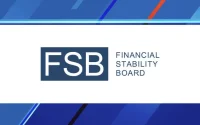Everledger Enters Voluntary Administration Amid Funding Shortfall
Blockchain technology company, Everledger, has entered voluntary administration after failing to secure expected investor funding. The Brisbane-based company, founded in 2015 by former Queensland chief entrepreneur, Leanne Kemp, used blockchain technology to trace the provenance of diamonds and other precious materials, later expanding to include high-end fashion, art, and wine.
Everledger, an Australian blockchain technology company led by Tencent, filed for bankruptcy and liquidation due to lack of investor funds. The company's employees received layoff notices on March 31. Everledger uses blockchain technology to track luxury items such as diamonds,…
— Wu Blockchain (@WuBlockchain) May 8, 2023
Everledger’s $20M Tencent Investment
Everledger has raised over $51.7 million in external investment over the past eight years, including a $20 million investment from Tencent, owner of social media giant WeChat, in 2020. Despite previous successful funding rounds, the latest investment failed to materialize, leading to the company’s collapse. Company employees were issued redundancy notices on March 31, and Vincents Chartered Accounts were appointed as administrators on April 24. Everledger’s holding company, based in the UK, is currently not in administration. The first creditor’s meeting was held on May 8.
The collapse of Everledger is part of a wider trend of Australian startups closing down in recent weeks, including Milkrun, Providoor, CoLab, and BoozeBud. The blockchain and cryptocurrency sectors have also come under increasing scrutiny from regulators, with cryptocurrency “Earn” products from Swyftx, Finder, and Block Earner facing regulatory action from ASIC since late December.
Blockchain’s Potential Uses
The blockchain industry has been a hot topic in recent years, but funding for blockchain companies has tightened as the sector has matured. Everledger’s collapse follows that of FTX, another cryptocurrency company that recently went under. The collapse of these companies has led to suspicions around the blockchain and cryptocurrency sectors, but many believe that these technologies will play an important role in the future of finance.
Despite Everledger’s collapse, the use of blockchain technology for tracing and tracking is likely to continue to grow. Blockchain has already been used to track food and pharmaceuticals, and its potential uses are vast. While the blockchain sector may be going through a rough patch, the technology is still in its infancy, and there is much to be explored and developed.



